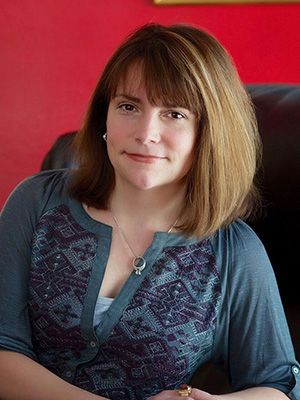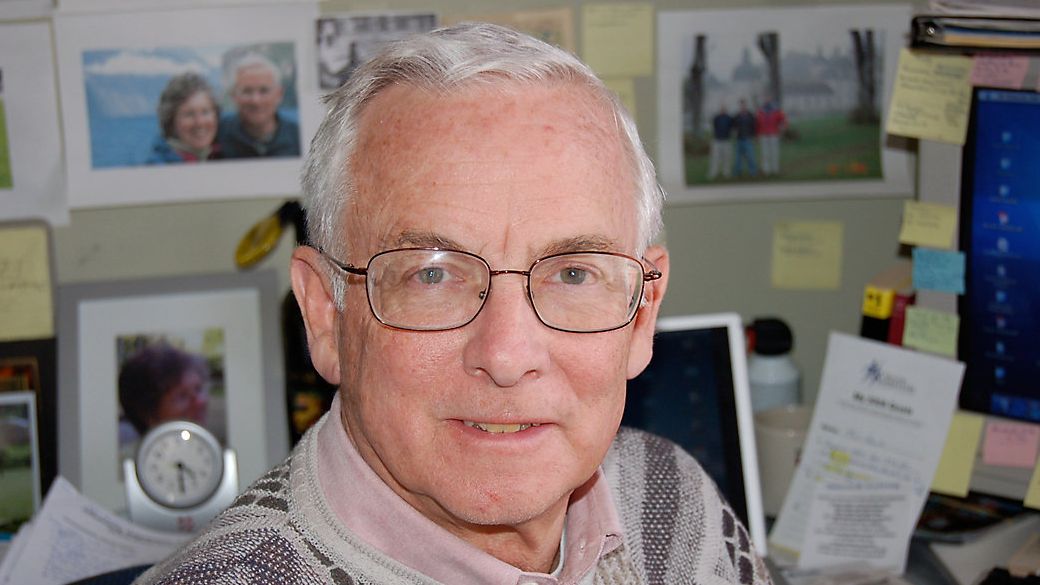WISCONSIN —Did you know northeast Wisconsin was once one of the preeminent business communities in the United States?
Seems hard to believe, but it’s true. In the 1980s and 90s, companies like Krueger International, Fort Howard Paper Company, Schneider National and Schreiber Foods were leaders in innovation, creative solutions and cutting-edge technology, unlike anyone else in the U.S.
“We were a couple of years ahead of what others were doing, at least,’’ said author Phil Hauck of his latest book, “The Golden Age of Brown County Enterprise.”
Concerned these stories would be lost over time, and the valuable and important lessons the leaders of these companies had to share, Hauck put pen to paper so it would preserve them in posterity.
“It was basically just reciting their stories,’’ Hauck said of the book. “And stories are the best way to get across ideas.”
These were stories about how KI showed the creativity and innovation to design high-end business furniture to capture the business of tech giant Microsoft, and today serves Google and Facebook. American Medical Security, founded by local agents Wally Hilliard and Ron Weyers, introduced co-pays and medical cards to their industry. Fort Howard pioneered the use of recycled paper 50 years before it became popular. Schreiber Foods became the industry leader in processed cheese, first for McDonald’s and then several other restaurant chains, and is now the second largest producer of yogurt in the world. Don Schneider correctly forecasted changes in the trucking industry, and shaped the way it would run the industry for years following deregulation. And there were many more.
“I mean, they grew by thousands of people, and they impacted their industry on a national basis,’’ said Hauck of those companies.
Hauck used to report on business, serving as a reporter at the Wall Street Journal for several years.
“And eventually I got tired of writing on business and wanted to participate in it,’’ he said.
He was in retail when he came to Green Bay and picked up on what some of the local companies were accomplishing.
“But I really wasn’t a part of it,’’ he said.
So he relied on his background and started a newsletter, the “Wisconsin Small Business Counselor.”
“Early in my career, I started wondering why good people may not be very good bosses,’’ he said.
It was through that work he came across an organization called The Executive Committee (now called Vistage), a peer group for CEOs and business leaders to learn from, challenge and inspire each other to become better in their roles and improve their companies.
So for the next 30 years, he ran groups, involving around a dozen CEOs, to inspire them to do and be better.
“So I started to get insight into how they run their organizations,’’ he said. “Everyone had a different approach to how they succeeded in such a massive way.”
In northeast Wisconsin, Hacuk said there were a couple of parallels between the successful businesses and their leaders.
“They were driven to succeed,’’ he said. “And they kept driving that organization. And when you’re doing that, you get mad at people when they didn’t reach a number they should have, or they didn’t perform for some reason, and the customer dropped them or whatever. They got on people pretty hard. That’s being driven. It doesn’t mean you’re a bad person.
“It means that people understand that, ‘Hey, I didn’t perform. I got held accountable for it. I’m gonna perform.’ The whole northeast Wisconsin, or upper Midwest, work ethic; big, big deal. Because what gets you the second order? It’s the fact you performed, the fact you executed that first order. And that turns out to be a major thing that differentiates the upper Midwest work ethic from the rest of the country, and potentially a lot of parts of the world. That’s a big deal. We retain our customers. Other companies around the country don’t.’’
Today, though, Hauck said many northeastern Wisconsin businesses are no longer leaders in their industries.
“We’re a couple of years behind,’’ he said. “We’re ripe for disruption.”
Hauck said they have not made the qualities that made those companies industry leaders a priority.
“It comes from a comfort level,’’ he said. “’Are we doing OK? Yes, we’re doing OK.’ So we’re not as innovative as we used to be.”
Which he said was another driver for him to write the book.
“My dream is that organizations would buy copies of the book, take a chapter a week for their senior team to read, and then say, ‘OK, what are the characteristics of the success of this company to what we’re doing? Where are we emulating them right now? Where might we consider doing something different,’” he said.
Hacuk said a couple of businesses already have used the book for just that purpose.

“One said he got a bunch of copies for the senior team and said, ‘OK, what I want to do is 20 years from now, I want to be in the next book that talks about this. So what are the things that we need to be doing to emulate them, and we’re gonna persist in doing that,’” said Hauck. “That’s the hope.’’
Hauck said all proceeds from the book will go to a pair of local nonprofit groups. He also had it published and printed by UW-Green Bay’s The Teaching Press, a student-managed printing house.
Also, he asked the 50 people he interviewed for the book if they would contribute to the cost of publishing the book. He raised $8,000, and $5,900 went to The Teaching Press, that enabled it to purchase and upgrade equipment.
And it also gave it an idea to raise more money, along with its profile.
“We really rely on donors and sponsors to help pay my interns and help them with the work,’’ said Teaching Press director Dr. Rebecca Meacham. “So, inspired by Phil’s idea, and the way that helped the Press, we’ve launched an advancement campaign for publishing, for a series, specifically devoted to great ideas of northeastern Wisconsin.
“And so, a great idea of that, somewhat what Phil was doing, but even more specific about looking at this great idea, talking to maybe a CEO, or leader of a nonprofit organization, and having them do a book with the press and having a series of books like that. So it helped help inspire a way for us to make more connections and hear more great ideas about the region.’’
So Phil Hauck’s book has preserved the rich history of northeastern Wisconsin businesses, hopes it will help strengthen and inspire current businesses and also helped The Teaching Press improve its business and inspire another line of businesses.
That’s good business.
Story idea? You can reach Mike Woods at 920-256-6321 or at: michael.t.woods1@charter.com.



